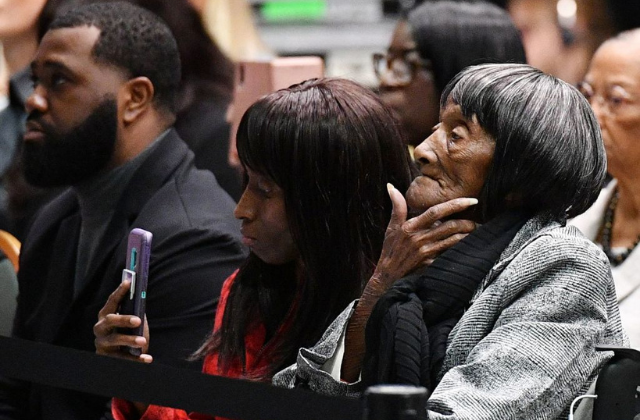Some descendants of victims of the 1921 Tulsa Race Massacre were not pleased when the bodies of 19 people exhumed from a mass grave that may be connected to the murders were reinterred on July 30, The Washington Post reports.
Several members of the Tulsa Mass Graves Public Oversight Committee—a group charged with monitoring the search for mass graves connected to the slaughter of hundreds Black people by mobs of White men in what was a massive display of racial violence—protested the reburial at the city-owned Oaklawn Cemetery, according to The Post.
Reports The Post:
The committee voted last week to delay reburial until the city delivers its report on the mass grave, where the skeletal remains of a Black man with multiple gunshot wounds to his head and shoulder were among those discovered in June.
But the city ignored the vote, said Chief Egunwale Amusan, a committee member and massacre victim descendant, who accused officials of “a coverup.”
Descendants of massacre victims on July 30 filed legal documents asking a judge to “grant a temporary restraining order to prevent the city from reburying the remains, The Post reports. The filing, however, came too late.
Michelle Brooks, a spokeswoman for Tulsa Mayor G.T. Bynum (R), told The Post “the city was required to rebury the remains to meet permit requirements obtained before the June excavation began.” The city was required to reinter the remains after the “on-site forensic analysis, documentation and DNA sampling were complete,” Brooks said.
According to The Post:
Scientists are expected to report their findings from the excavation this fall, when they will make recommendations for the next steps in the investigation.
Brooks said further analysis will determine whether the remains belong to massacre victims.
“If they are, then we will want to try to match DNA with descendants and let descendants decide where they want them to be buried,” she said. “If they can’t be identified, we would work to establish a permanent memorial.”
Protestors, however, weren’t happy with that explanation, which moved them to gather at the reburial site. They shouted at scientists and city officials to stop the reinterment, according to The Post.
“We are not done yet,” Phoebe Stubblefield, the lead forensic anthropologist, told the crowd. “And we have not stopped.”
